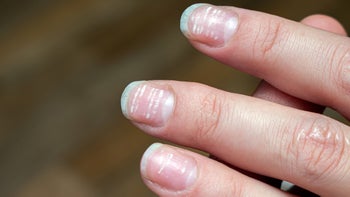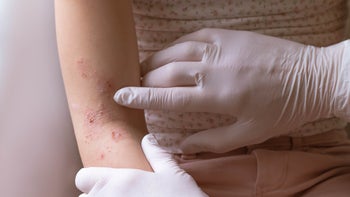
Should I Switch to a Sulfate-Free Shampoo?
Key takeaways:
Sulfates are chemicals found in shampoos that help to clean the hair and scalp.
Sulfates are recognized as safe, and there is no clear evidence linking sulfates to cancer.
If you have a sensitive scalp, however, a sulfate-free shampoo may be beneficial.

Over the past years, the popularity of sulfate-free shampoos has skyrocketed as beauty connoisseurs rave about their gentle cleansing benefits and eco-friendly ingredients. If you walk down any beauty aisle, you’ll see dozens of sulfate-free shampoos claiming to be better for your hair than traditional shampoos. But are sulfate-free shampoos really better for you? We’ll examine the benefits and disadvantages of using sulfate-free shampoos.
What are sulfates?
Sulfates are surfactants (compounds that attract both oil and water) used to create lather and easily wash away dirt and grime. They are found in many personal care products like body wash, shampoo, facial cleansers, and toothpaste, as well as in household cleaning products.
Why are they in shampoos?
Sulfate shampoo products are designed to clean the hair and the scalp. When combined with water, sulfates easily wash away dead skin cells and dirt from your hair and scalp.
Search and compare options
Sulfates create the “sudsy” consistency many desire while washing hair. When using sulfate shampoos, it’s easier to clean your scalp because you don’t have to scrub vigorously, thanks to help from the suds.
The two primary sulfates found in shampoos are:
Sodium lauryl sulfate (SLS): This helps produce rich foam in shampoos that can be easily rinsed. It’s frequently found in shampoos formulated for oily hair.
Sodium laureth sulfate (SLES): These types of detergents provide cleansing and foaming properties that can help normal-to-dry hair types.
Why are some people concerned about sulfates in haircare?
There has been a lot of recent controversy over sulfate products, with some questioning their potential negative impact on our health and the environment.
Sulfates and your skin
Although sulfates are generally safe, they are known to cause skin irritation, especially in sensitive individuals.
Researchers in Germany tested 1,600 patients for SLS irritancy and found 42% of the patients had an irritant reaction.
Read more like this
Explore these related articles, suggested for readers like you.
SLS has even been used as a positive control in dermatological testing, which means that new products are compared to SLS in determining their degree of irritation.
If you suffer from skin conditions such as rosacea, eczema, and dermatitis, the American Academy of Dermatology recommends using sulfate-free shampoos to avoid irritation.
Sulfates and your hair
Overexposure to sulfates might lead to the deterioration of hair protein. According to a study published in 2005, hair immersed in a sodium dodecyl sulfate solution loses two times as much protein as hair immersed in water.
Because they are such efficient cleaners, sulfate shampoos may pull a lot of natural oil from hair, potentially leaving it dry and brittle.
Sulfates and the environment
There is controversy over the impact of sulfate shampoo on the environment. Many shampoo companies derive sulfates by harvesting palm oil, which often destroys forests and natural habitats.
There’s also some evidence to suggest that SLS might be harmful to aquatic life. However, in products, this likely isn’t the case as the SLS is diluted.
Sulfates and cancer
There have been past, unsubstantiated claims that sulfates, particularly SLS, could cause cancer. Sulfates are not known carcinogens, and there is no evidence regarding a link between cancer and sulfates.
Who should be using a sulfate-free shampoo?
Overusing sulfate shampoos can be cruel on delicate strands making your hair dry and rough.
If your hair has been recently colored, chemically treated, or you naturally have dry or coarse hair, consider trying a sulfate-free shampoo to see if your hair health improves.
You might want to avoid sulfate shampoos if you have sensitive skin or a skin condition such as rosacea. Sulfates can be harsh on the scalp and may cause irritation and itchiness. Sulfate-free shampoos are usually much milder.
Are there any downsides to using sulfate-free shampoo?
Some may get discouraged by the lack of “suds” that sulfate-free shampoo produces while washing hair. This can make consumers feel as if their hair isn’t fully clean. However, suds are not necessary to clean hair.
Some people report experiencing greasy hair after using sulfate-free shampoos. The cleansing agents and ingredients in sulfate-free shampoos are mild, like decyl glucoside or coco glucoside, and so they don’t always clean hair thoroughly to remove buildup.
Is it worth spending more on sulfate-free shampoo?
Sulfate-free shampoos tend to be more expensive. If you have sensitive skin, fragile, or dyed hair, spending more money for a sulfate-free option can be worth it to prevent damage.
If you’re on a budget, consider making your own homemade shampoo with natural ingredients such as diluted apple cider vinegar and honey. You can also look for African black soap, as it can double as a shampoo and body wash.
The bottom line
Shampoos containing sulfates don’t have the best reputation due to their questionable production process and rumored carcinogenic effects; however, the primary issue with shampoos containing sulfates is the possibility of irritation. If you’ve been experiencing a sensitive or irritated scalp, try switching to sulfate-free shampoos to reduce irritation. If you have no trouble while using shampoos with sulfates, there’s no health reason to make the switch.
Why trust our experts?



References
Agner, T., et al. (1990). Sodium lauryl sulphate for irritant patch testing - A dose-response study using bioengineering methods for determination of skin irritation. Journal of Investigative Dermatology.
American Academy of Dermatology Association. (n.d.). 6 rosacea skin care tips dermatologists give their patients.
Bondi, C. A., et al. (2015). Human and environmental toxicity of sodium lauryl sulfate (SLS): Evidence for safe use in household cleaning products. Environmental Health Insights.
Fiume, M. M. (2013). Safety assessment of decyl glucoside and other alkyl glucosides as used in cosmetics. International Journal of Toxicology.
Geier, J., et al. (2003). Patch testing with the irritant sodium lauryl sulfate (SLS) is useful in interpreting weak reactions to contact allergens as allergic or irritant. Contact Dermatitis.
Wagner, R., et al. (2005). Hair protein removal by sodium dodecyl sulfate. Colloids and surfaces B: Biointerfaces.
World Wildlife Fund. (n.d.). Which everyday products contain palm oil?




























